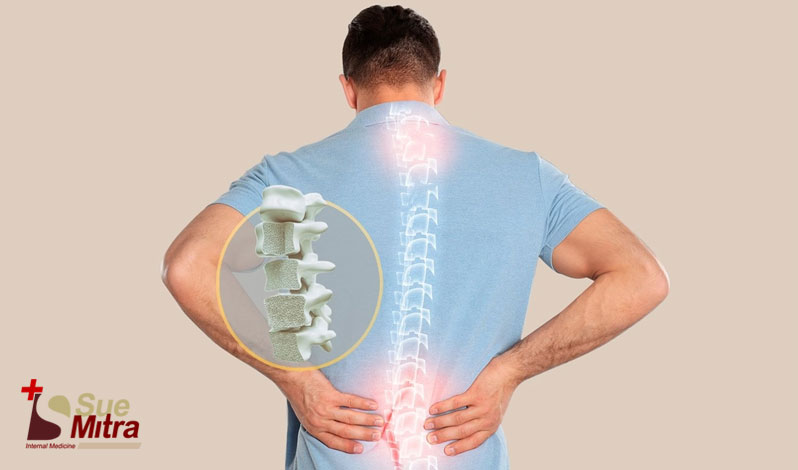
07, Mar 2025
According to Dr. Sue Mitra, Osteoporosis in Melbourne, FL is a silent yet serious condition that weakens bones, making them more prone to fractures. It primarily affects women, especially postmenopausal women, due to the decline in estrogen levels, which plays a crucial role in maintaining bone density.
The Importance of Calcium
Calcium is an essential mineral for strong bones and overall health. The body stores nearly 99% of its calcium in bones and teeth, and when there’s a deficiency, bones start losing their density, increasing the risk of osteoporosis.
Women require different amounts of calcium at different stages of life:
Ages 19–50: 1,000 mg/day
Ages 51 and older: 1,200 mg/day
Risk Factors for Osteoporosis
Age: Bone density naturally declines with age.
Hormonal Changes: Menopause leads to a drop in estrogen, accelerating bone loss.
Nutritional Deficiencies: Low calcium and vitamin D intake contribute to weaker bones.
Sedentary Lifestyle: Lack of weightbearing exercises reduces bone strength.
Genetics: A family history of osteoporosis raises the risk of developing the condition.
How to Prevent Osteoporosis
Preventing osteoporosis starts with maintaining strong bones through lifestyle and dietary changes:
Increase Calcium Intake: Dairy products, leafy greens, almonds, and fortified foods are excellent sources.
Vitamin D is Key: This vitamin helps the body absorb calcium. Sun exposure and supplements can ensure adequate levels.
Exercise Regularly: Weightbearing exercises like walking, jogging, and resistance training strengthen bones.
Limit Smoking and Alcohol: Both contribute to bone loss and should be minimized.
Regular Bone Density Tests: Women over 50 should consider screening for osteoporosis to detect early signs of bone loss.
Osteoporosis Management and Treatment
For women already diagnosed with osteoporosis, treatment options include:
Medications: Doctors may prescribe bisphosphonates, hormone therapy, or other medications to slow bone loss and improve density.
Dietary Adjustments: Ensuring adequate calcium and vitamin D intake remains essential.
Physical Therapy: Strength training and balance exercises help prevent falls and fractures.
Take Control of Your Bone Health
Osteoporosis is a preventable and manageable condition with the right lifestyle and medical interventions. At Dr. Sue Mitra’s clinic, we are committed to helping women maintain optimal bone health. If you have concerns about osteoporosis in Melbourne, FL, schedule a consultation or contact us today at 321-622-6222 or visit our website suemitra.com to discuss prevention, diagnosis, and treatment options tailored to your needs.
Stay strong, stay healthy!
Dr. Sue Mitra and her staff strive to offer their patients the best care, advice and services available in the medical field with the goal to keep patient healthy & happy.

Dr. Sue Mitra is board certified in international medicine. She is seen here with a Cologuard, which is a noninvasive colon cancer screening test. (Photo by: Tim Shortt/Florida Today)